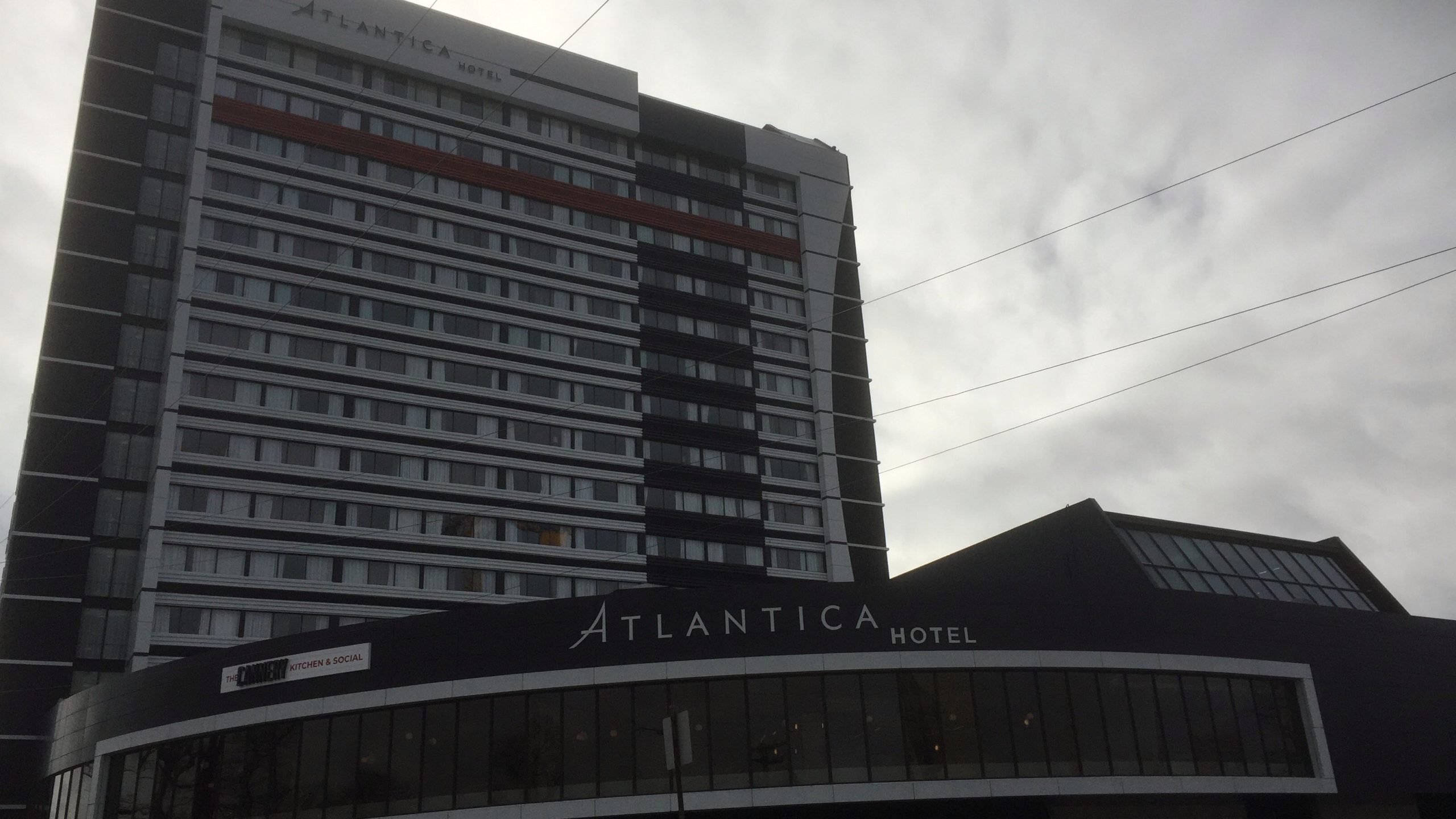Nowhere to go but up: the recovery of Nova Scotia’s hotel industry
Numbers suggest worst effects of COVID on hotels, motels are in the past

caption
The province's hoteliers, like the Atlantica in Halifax, are hoping their industry recovers somewhat in 2022.Despite the unrelenting nature of the COVID-19 pandemic, the worst seems to be over for Canada’s accommodation services.
According to data released on Feb. 2 by Statistics Canada, in 2020, the accommodations sector made $17 billion in revenue, the lowest since 2012. The sector generated $26.9 billion in 2019, so the 2020 figure represented a 36.7 per cent decrease.
Hotels and motels were among the most affected, seeing their operating revenue reduced to $13.3 billion — a 40.6 per cent decrease from the previous year.
For Megan Delaney, president of the Hotel Association of Nova Scotia, 2021 was an improvement.
“In the summer months, we actually saw about 60 per cent recovery through occupancy,” she said. “Compared to other urban markets, Halifax did a little better due to the fact that public health in Nova Scotia was considered safe.”
But improvement does not equal recovery. Delaney added that the Nova Scotia hotel industry was worth over $2 billion prior to the pandemic, before revenue was cut by as much as 85 per cent.
She also said it might be 2024 or 2025 before businesses return to pre-COVID revenue levels.
These conclusions align with national statistics. While the pandemic did not change the sector’s primary sources of revenue — room and unit accommodations for travellers comprising 67.8 per cent — the operating profit margin declined from 14.7 per cent in 2019 to 3.7 per cent in 2020.
Nevertheless, Delaney is optimistic. Despite increased restrictions and the Omicron outbreak, she believes 2022 could be a good year.
“There are some studies that show domestic travel in Canada could be up 23 per cent over 2019, as of this year,” she said.
“In particular, Nova Scotia has a spotlight in Atlantic Canada for quality of life and being a safe destination to visit. It’s a great (business) opportunity once we get out.”
Attracting visitors is not the only challenge the industry faces. Delaney, who also is the general manager of Halifax’s Cambridge Suites, said staffing is a major problem.
“There were some pretty massive layoffs in the first and second waves of COVID and a lot of people chose to leave the industry and find something else,” she said.
“It also doesn’t help that there’s an overall labour shortage, both throughout Canada and globally.”
Delaney added that hotels are competing against each other for a limited number of staff, and also against work opportunities outside the hospitality industry.
“The healthcare system is a great example,” she said. “Many people who used to work at hotels are now working at COVID-19 stations. Having a strong labour force is no longer just about recruitment. It’s about retention.”
These staffing challenges are shared by businesses outside Halifax.
For both Dylan Meisner, general manager of White Point Beach Resort and Erica Byleveld, hospitality manager of Wolfville’s Tattingstone Inn, the release of government financial support made staff retention especially difficult.
“We were actually saying ‘no’ to new employees before the pandemic,” Byleveld said. “The only problem was that after the pandemic hit, everyone who had been off work wanted to keep making government aid. There were a lot of people who really needed it, but there were a lot who could have been working and decided not to.”
And according to Meisner, “CERB was originally a disincentive for people to come to work since it was equal to minimum wage.”
But both Meisner and Byleveld added that adjustments were made as needed.
“We did everything with staff safety in mind and focused on the mental well-being of our hourly associates,” Meisner said.
“That ended up translating into a pretty positive work experience. We now have 135 people on staff, which is huge — probably the largest in the province. I have huge respect and thanks for all of them.”
The Tattingstone Inn raised its wages, which Byleveld hopes will attract more staff to add to the inn’s complement of nine employees.
Byleveld also said new business ideas have been essential in helping maintain revenue streams during the pandemic.
“We’re not getting our numbers and revenues for stays and reservations, but we’ve started things like dinners and weekend brunches,” she said.
“Business also improved in 2021 when we worked with other businesses to host activities like wine tours.”
Meisner also said he’s thankful to see White Point Beach Resort making it through the pandemic.
“We saw a drop in business, but we made out OK,” he said. “We were lucky enough to have received government subsidies throughout.”
Meisner added that although White Point Beach Resort has closed three times during the pandemic, including a three-week period last month, the impact was not too devastating.
“We’ve seen an increase in our shoulder season business because people couldn’t go south and there was a desire to get out and have some sense of normalcy.”
About the author

Josh Neufeldt
The resident esports enthusiast of King's journalism. 4th year with an affinity for gaming, movies and food.
